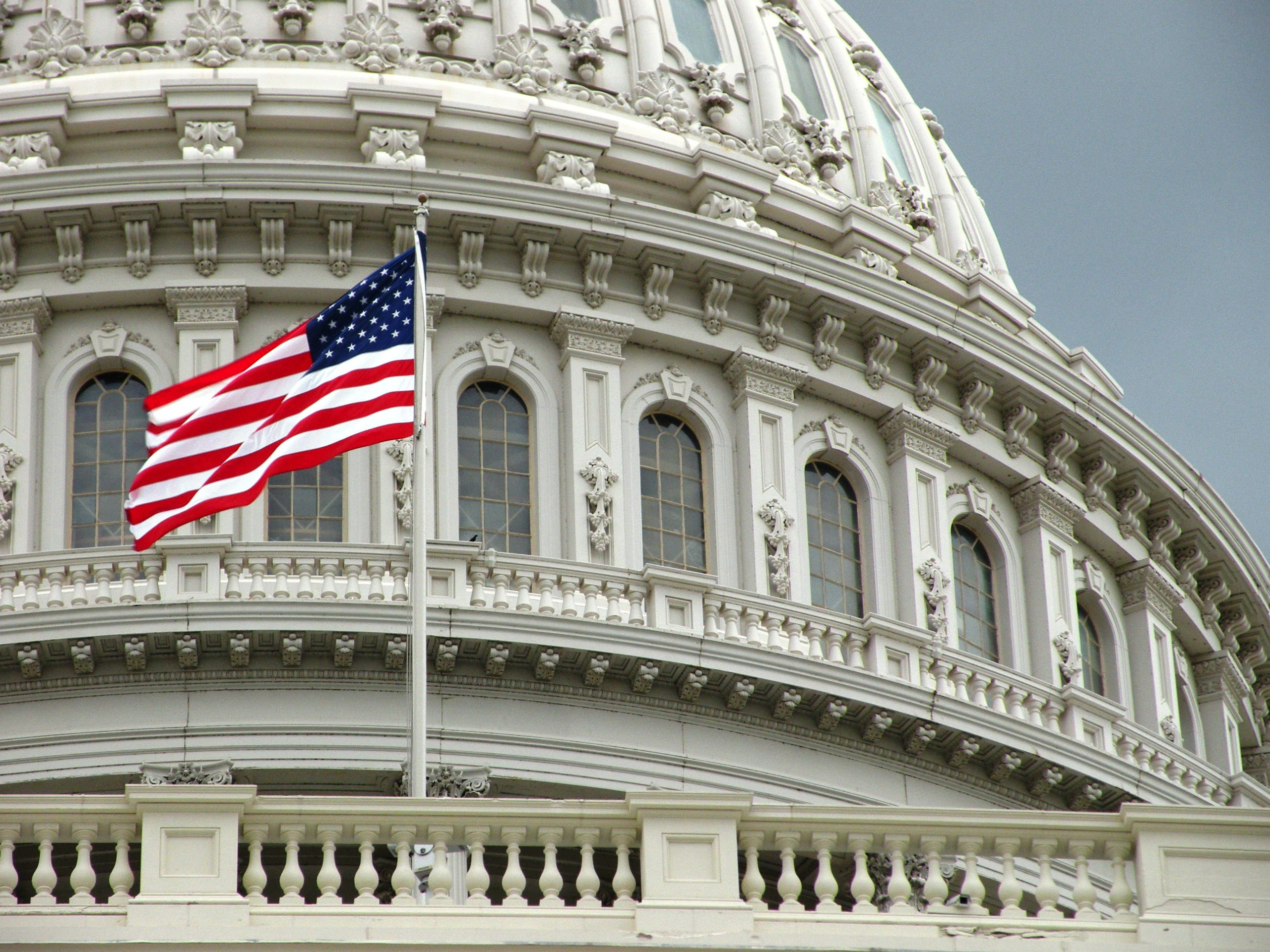
Congress should tailor the notice-and-comment process for more meaningful public participation.
Americans, perhaps more than any other group of people living or dead, are obsessed with politics. Within a matter of days after a new President’s setting up shop in the Oval Office, media pundits begin obsessing over who the President’s successor might be. U.S. Senate and U.S. House of Representatives elections draw less interest, and state and local politics less interest still.
Regulatory agencies, it seems, receive the least interest of all. This is a shame, because, at least at the federal level, far more lawmaking takes place in the dimly lit corridors of the numerous agencies, bureaus, and commissions scattered across the Beltway than in the hallowed halls of Congress.
On the rare occasions when Americans do take interest in a regulatory topic, many bring to it the same philosophy that they apply to all other aspects of civil life: The people rule, and their popularly expressed will must dictate how the government acts. To see this phenomenon in action, consider the piles of public comments filed every year by ordinary citizens. These comments either express agreement or disagreement with certain proposed agency actions. Of course, in the realm of regulatory policymaking, this philosophy of popular will dictating governmental action would seem fundamentally misguided.
Congress created regulatory agencies with the express goal of de-politicizing certain governmental activities. The entire administrative state is built on the notion that Congress dictates certain policy goals and then highly trained experts who staff the federal bureaucracy figure out the most effective, efficient way of achieving those goals. The idea that regulators would somehow seek to ascertain public opinion and then translate it into a set of policies is completely foreign to the whole enterprise.
Yet, the popular perception does not seem that unreasonable when you consider the structure of the modern administrative state.
First, the notice-and-comment process is explicitly designed to allow all individuals to express their views, regardless of whether they have any expertise on, or even firsthand experience with, the problem that the proposed rule addresses. Agency officials often fuel this sentiment, throwing around phrases such as “make your voice heard” or even explicitly encouraging everyday citizens to “make noise” when they suspect most public commenters will favor their preferred outcomes.
Second, Congress has often delegated so much power to administrative agencies that regulators are doing far more than merely “filling in the details” of federal statutes. When Congress sets agency officials loose with little more than a vague directive to regulate in the “public interest,” as it often has, the principle that Congress, made up of elected representatives rather than unelected bureaucrats, performs the primary lawmaking function falls by the wayside. If regulators are making basic policy decisions such as what activities should be regulated and how stringent those regulations should be, you cannot blame public commenters for wanting some say in the outcome. And as then Professor Antonin Scalia observed, allowing public input to shape agency policy perhaps reestablishes, however imperfectly, some of the political accountability that is lost when Congress delegates away its policymaking powers.
Given this dynamic, one might be tempted to argue that regulators should, in fact, place greater emphasis on public opinion expressed in the notice-and-comment process than they typically have. Under existing law, there is little that prevents them from doing so.
The Administrative Procedure Act requires agencies to consider the “relevant matter presented” in public comments, and no court has held that public opinion is per se relevant or irrelevant. Of course, an agency might run afoul of the law if it relied exclusively on public opinion or relied on public opinion in a way that contravened some other statutory requirement. But agencies are generally free to pick the more popular option when they have a variety of available alternatives.
Moreover, if Congress persists in its reluctance to make the difficult policy decisions associated with regulatory interventions and the U.S. Supreme Court does not ratchet up the nondelegation standard, the general public should be allowed to weigh in on these decisions to the greatest extent possible. The challenge, of course, is channeling public input in a way that is actually useful and properly targeted to the types of problems an agency may be confronting.
One possible approach to this problem might be picking the policy “winner” based purely on the number of public comments for and against a proposal. Experts who have considered this approach, including myself, think it is a terrible idea. As I and others have noted elsewhere, public comments are often unrepresentative of public opinion, usually reflecting only the most extreme or well-connected voices. But I would also submit that other mechanisms of integrating public opinion into regulatory policymaking are perfectly appropriate and worthy of further exploration. In at least some cases, a representative sample of citizens, rather than a small team of unelected bureaucrats, might be empowered to speak to or even decide certain issues.
Fleshing out exactly how this might work in practice would need to be worked out in individual cases, but the basic outline might look as follows.
For certain regulatory problems, agencies should signal that public opinion is not relevant because these problems involve almost no policymaking discretion. They consist exclusively of scientific or other technical inquiries. Consider, for instance, the question of what level of agricultural DDT usage will ensure that California Condor populations do not drop below 100 breeding pairs. It is not an easy question to answer, and an agency addressing it would be well served to receive outside input from ecologists, chemists, and other experts. No policy judgment is required.
For this type of inquiry, any outside input should be limited to technical comments. Were an agency to seek public input on this sort of question, it would almost certainly receive at least some comments to the effect of “Save the condors!” or “Stop destroying America’s small farms!” Such comments are completely irrelevant to the question at hand, so the agency should ignore them. And it should make clear to prospective commenters its intent to do so.
Other regulatory problems, though, do involve varying levels of policy discretion. Imagine, for example, a statute authorizing an agency to regulate DDT emissions to the extent “economically feasible.” The question of economic feasibility includes a number of embedded technical determinations including how much it would cost farmers to switch from DDT to another pesticide, as well as policy determinations including how disruptive a DDT ban would be to small farmers.
Under the current notice-and-comment regime, the underlying technical and policy issues all get lumped together: The agency asks for comments on any aspect of the problem, sees what it gets, and then sorts through the responses. An agency could take a far more productive approach by first identifying the questions on which it seeks input and indicating the type of input it seeks.
Regulatory decisions also often involve weighing societal costs against societal benefits. Economic analysis helps agencies make these determinations, but the question of how to weigh the various tradeoffs often comes down to a value judgment. For example, is it more important to preserve an endangered species or to save small farms from insolvency? For these types of questions, an agency should consider polling a representative group of citizens or, better still, creating a citizen jury to offer an opinion after studying the problem. These actions would give the agency a far more accurate picture of public opinion than merely soliciting public comments.
Involving the public in regulatory policymaking in the ways contemplated above would pose a whole litany of challenges. Would Congress set out the technical and policy questions to be addressed when delegating rulemaking power, or would it task agencies with doing so? If the agency formulates the questions, is there a risk of its biasing the outcome based on how it frames the problem and conducts the outreach? Would the agency ever be required to honor the public’s policy preferences, which would almost certainly require statutory reform, or would public input always be treated as merely advisory?
Given this uncertainty, it would be premature for Congress or even an individual agency to modify its overall public input process along these lines. Yet Congress might consider moving in this direction by supplementing or even replacing notice-and-comment requirements in specific regulatory regimes with other methods that could obtain more useful public input. Agencies could also voluntarily supplement notice and comment in appropriate cases, as a recent Administrative Conference of the United States recommendation suggests.
Admittedly, this approach could impose significant costs in terms of protracting the rulemaking process. It is much easier to pose a general question and sort through the comments received. A new or modified process, however, could save time and money down the road by increasing the likelihood that the information the agency receives is useful and relevant.
More significantly, overhauling the notice-and-comment process in this way would bring regulatory policymaking more into line with what the American public appears to expect from the system and would ensure that unelected decision-makers claiming to act in the public interest have some sense of what the public actually wants. At the end of the day, agency officials or, better still, members of Congress must decide the contents of the law. A more citizen-focused approach to public participation would serve to democratize and demystify the regulatory process. Ideally, it would yield policies that benefit the broader citizenry, rather than just a small coterie of well-connected players involved in rulemaking.
This essay is part of a nine-part series entitled Creating an Administrative System for All.




